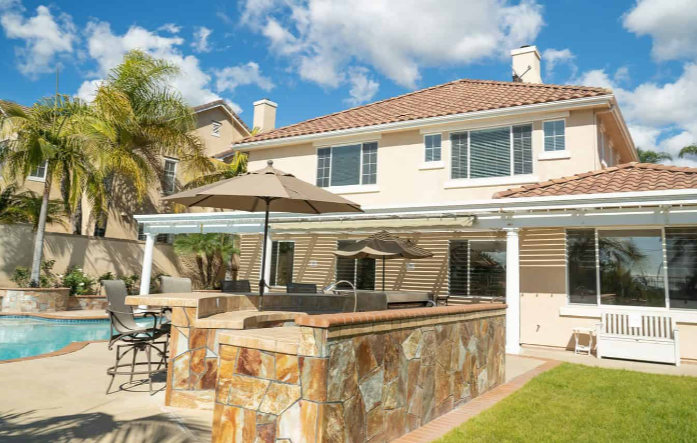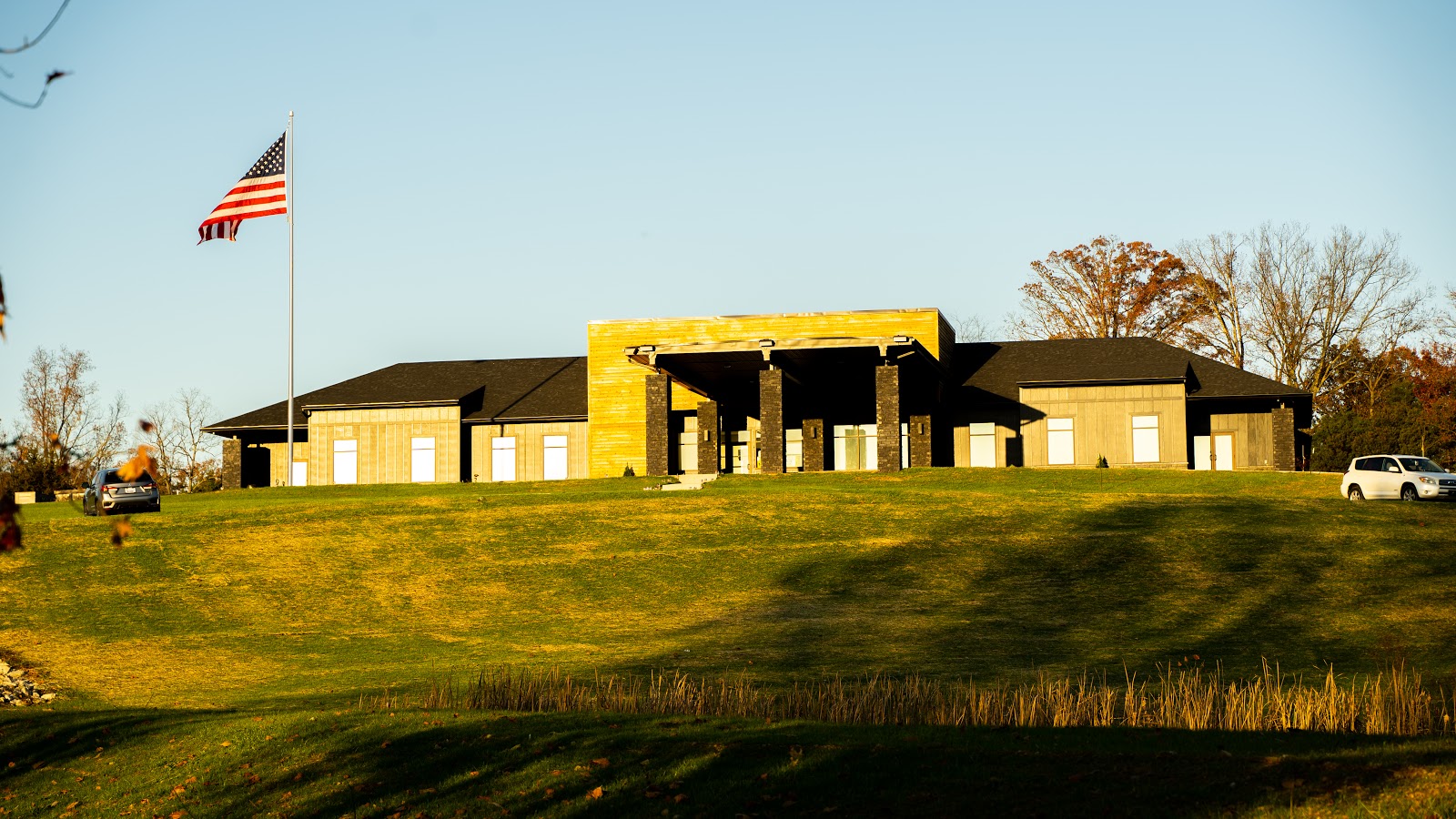Valley Recovery at Agua Dulce
Overview
Valley Recovery at Agua Dulce is a premier luxury drug and alcohol rehabilitation center located in the tranquil hills of Agua Dulce, California. The facility offers comprehensive residential addiction treatment, medical detox, and a specialized men’s only treatment program. The center is designed to provide a serene and private setting where clients can focus on their recovery in a supportive and discreet environment.
The residential treatment program at Valley Recovery offers each client the comfort and privacy of an individual suite, ensuring a personalized and peaceful experience. The luxury facility boasts a range of amenities, including a game room, pool, hot tub, gym, and beautifully landscaped grounds that encourage relaxation and reflection. The program is structured to provide a holistic approach to recovery, incorporating a variety of therapeutic methods to address the physical, mental, and emotional aspects of addiction.
Valley Recovery’s treatment regimen includes a combination of individual, group, and family therapy sessions. Clients engage in 12-Step programs, process groups, and psychoeducational sessions to gain a deeper understanding of their addiction and develop strategies for long-term recovery. The center also offers a range of experiential therapies such as art therapy, music therapy, and mindfulness practices, including yoga and meditation, which help clients explore and express their emotions in healthy ways. Additional therapeutic interventions include cognitive behavioral therapy (CBT), motivational enhancement therapy (MET), anger management classes, nutrition support, exercise programs, and hypnotherapy.
For those needing medical detox, Valley Recovery provides a safe and medically supervised environment where clients can begin their journey to sobriety. The detox program uses FDA-approved medications such as methadone, naltrexone, and buprenorphine to ease withdrawal symptoms and reduce drug cravings, making the detoxification process as comfortable as possible.
Throughout their stay, clients are closely monitored by a dedicated case manager who oversees their progress and adjusts their treatment plans as needed. This individualized approach ensures that each client receives the care and attention necessary to achieve and maintain sobriety.
Valley Recovery at Agua Dulce accepts most major insurance plans, including Cigna, ComPsych, HealthNet, HMC HealthWorks, TRICARE, Aetna, Anthem, Blue Cross Blue Shield, Multiplan, and Beacon. Clients are encouraged to verify their out-of-network benefits directly with their insurance provider to ensure comprehensive coverage.
This esteemed facility is accredited by The Joint Commission, which underscores its commitment to providing the highest standard of care in addiction treatment. At Valley Recovery, the focus is on creating a non-institutional, home-like environment where adult men can safely heal from addiction to drugs, alcohol, opioids, and benzodiazepines.
Valley Recovery at Agua Dulce at a Glance
Payment Options
- Cash or self-payment
- Private health insurance
- Self-pay options
Assessments
- Comprehensive mental health assessment
- Comprehensive substance use assessment
Age Groups
- Adults
Operation
- State government
Accreditations
The Joint Commission:

The Joint Commission accreditation signifies that a facility has met rigorous standards of excellence in patient care, treatment, and safety. It assures individuals and healthcare professionals that the accredited facility provides high-quality, evidence-based care for addiction and mental health issues, fostering trust and confidence in their services.
Treatment At Valley Recovery at Agua Dulce

Conditions Treated
Mental health treatment:
Mental health treatment involves various therapies and support services provided by licensed professionals to address mental health issues. These interventions, which can include therapy, medication, and holistic approaches, aim to enhance well-being, improve coping, and empower individuals to lead fulfilling lives. It's personalized, comprehensive care for mental health challenges.
Alcoholism:
Alcohol addiction is a health problem where drinking takes control over a person's life. It affects how their brain thinks and acts, leading to strong desires to drink, bad feelings, sudden actions, and discomfort when not drinking. To help someone with this problem, there are treatments like detox, counseling, group support, and learning coping methods. While treatment can't completely cure the urge to drink, it helps people regain control of their lives and feel better overall.
Opioid Addiction:
Opioid rehabs specialize in supporting those recovering from opioid addiction. They treat those suffering from addiction to illegal opioids like heroin, as well as prescription drugs like oxycodone. These centers typically combine both physical as well as mental and emotional support to help stop addiction. Physical support often includes medical detox and subsequent medical support (including medication), and mental support includes in-depth therapy to address the underlying causes of addiction.
Substance use treatment:
Substance use rehabilitation is a comprehensive treatment approach designed to assist individuals struggling with addiction to drugs or alcohol. This form of rehabilitation addresses both the physical dependency, often starting with detoxification, and the psychological triggers, using various therapeutic methods. The objective is to empower individuals to achieve and maintain sobriety, while equipping them with the tools and coping strategies needed to reintegrate into society and lead a substance-free life.
Co-occurring Disorders:
Dual-diagnosis rehabilitation centers usually offer the most suitable approach for addressing concurrent mental health and substance abuse conditions. Within these facilities, a team of medical and behavioral professionals is typically assembled, employing diverse interventions and cultivating an optimal therapeutic environment to enable you to attain and maintain lasting recovery. The treatment regimen often encompasses evidence-based therapies, such as cognitive behavioral therapy, complemented by recovery support gatherings, 12-step program facilitation, skills development, and group therapy.

Levels Of Care
Luxury Treatment:
Luxury rehab centers provide a high-end, serene environment for individuals battling addiction and mental health issues. Set in picturesque locations, they offer personalized care, spa treatments, gourmet cuisine, and holistic therapies. These centers meld professional expertise with resort-like comforts, offering a discreet and holistic rehabilitation experience.
Detoxification:
Detoxification, often shortened to detox, is like giving the body a fresh start by getting rid of harmful substances like drugs or alcohol someone may have taken. When a person stops taking these substances, they might feel sick or uncomfortable as their body adjusts to the change. Detox helps ease these uncomfortable feelings while making sure the harmful substances are removed from the body in a safe way. This process helps prevent any additional harm caused by the drugs or alcohol.
Hospital inpatient treatment:
Inpatient treatment involves a comprehensive residential therapeutic program where patients stay on-site for a duration typically ranging from 30 to 90 days. This immersive environment offers structured support, ensuring safety and a focus on recovery. Therapies provided include individual and group counseling, cognitive-behavioral therapy, holistic treatments, family therapy sessions, and experiential therapies. The aim is to address addiction or mental health disorders' physical, emotional, and psychological aspects, laying a robust foundation for sustained healing.
Hospital inpatient detoxification:
Hospital Inpatient Detoxification provides intensive care for individuals withdrawing from addictive substances. Patients receive 24/7 medical supervision within a controlled environment, alleviating withdrawal symptoms and ensuring safety. This acute treatment is ideal for individuals with severe addictions, previous withdrawal challenges, or those who lack a supportive detox environment at home.

Treatment Modalities
Family counseling:
Family Counseling is a therapeutic approach that seeks to address and improve communication, understanding, and dynamics within a family unit. By addressing conflicts, emotional distress, and behavioral challenges, a trained therapist provides guidance and tools for family members to strengthen bonds, resolve issues, and foster a healthier family environment.
Individual counseling:
In individual therapy, a person engages in a one-on-one session with a qualified therapist or counselor. This therapeutic approach is crucial in successful substance abuse treatment because it delves into the underlying causes of addiction, addressing issues the individual may encounter in their familial, social, and professional or academic environments.
Group counseling:
Group therapy entails therapeutic sessions conducted in a collective setting rather than one-on-one. It encompasses various modalities, from support groups and experiential therapy to psycho-education and beyond. The approach focuses on treatment and emphasizes the dynamic interactions and shared experiences among group members.
12-step facilitation:
12-Step Facilitation is a structured approach to recovery used in many rehab facilities. It's rooted in the principles and practices of Alcoholics Anonymous (AA) and its 12-step program. The facilitation process promotes abstinence and supports individuals in becoming actively involved in 12-step self-help groups. The approach emphasizes personal responsibility, spiritual growth, and the importance of peer support to maintain sobriety and prevent relapse. By guiding individuals through each step, 12-step Facilitation aids participants in understanding the underlying causes of their addiction, seeking amends, and fostering a commitment to lifelong recovery.
Experiential Therapy:
Experiential Therapy is a therapeutic approach that emphasizes direct experience and active client involvement to gain insight into unresolved issues and trauma. Through guided activities, role-playing, and other interactive techniques, clients are encouraged to confront and explore their emotions in the present moment, leading to a deeper understanding and resolution of their challenges. This therapy is rooted in the belief that transformative change occurs through meaningful experiences.
Individual psychotherapy:
Individual Psychotherapy provides a private, one-on-one setting where clients can explore and address their personal challenges, behaviors, and feelings related to addiction and recovery. With the guidance of a trained therapist, clients work to uncover the root causes of their substance use, develop coping strategies, and build a foundation for long-term recovery and personal growth.

Additional Locations
Contact Information
DISCLAIMER: The facility name, logo and brand are the property and registered trademarks of Valley Recovery at Agua Dulce, and are being used for identification and informational purposes only. Use of these names, logos and brands shall not imply endorsement. BetterAddictionCare.com is not affiliated with or sponsored by Valley Recovery at Agua Dulce.





